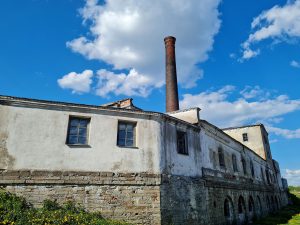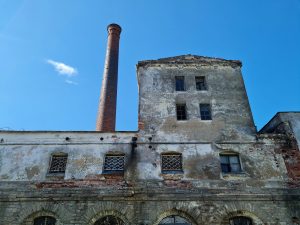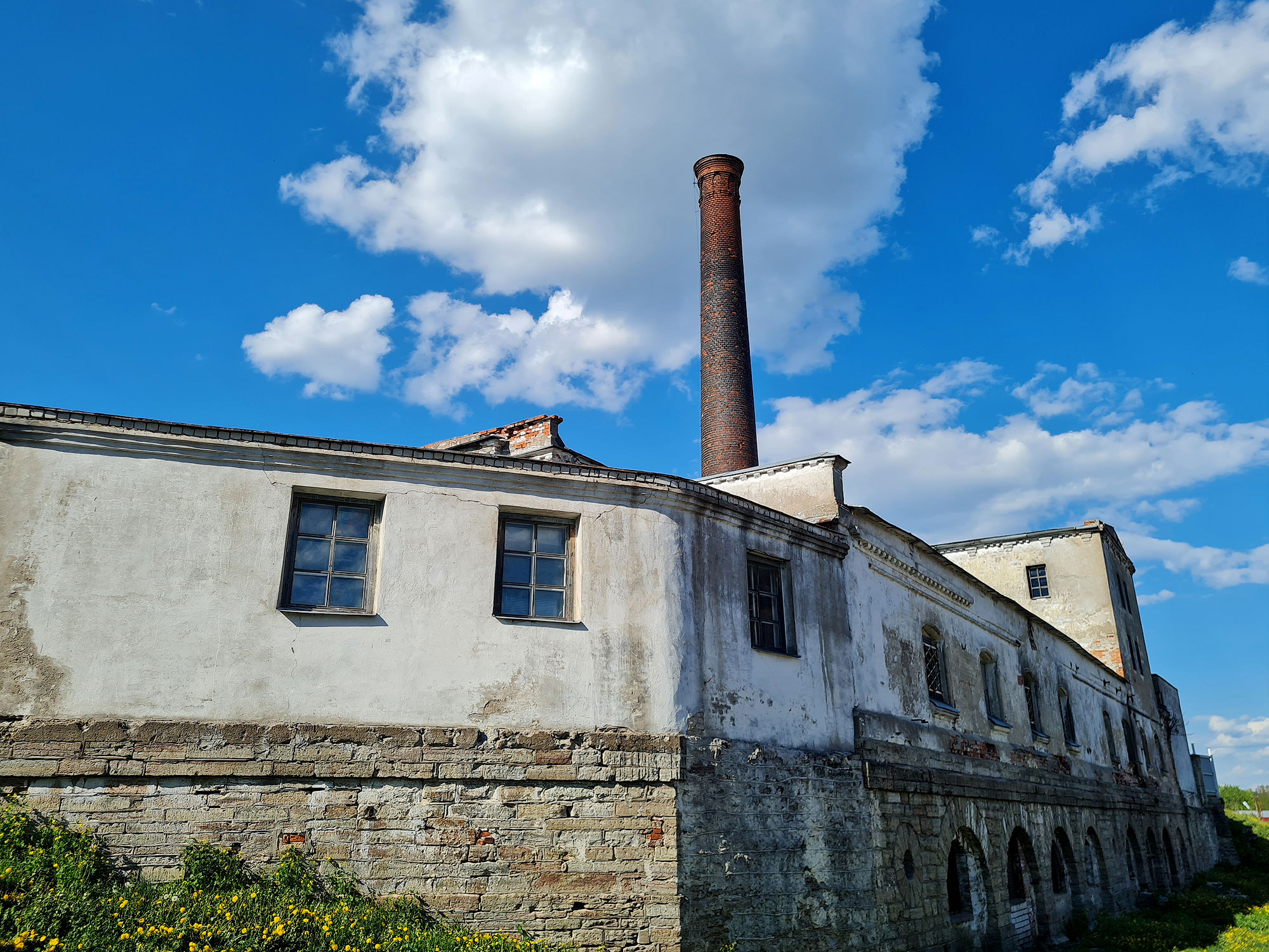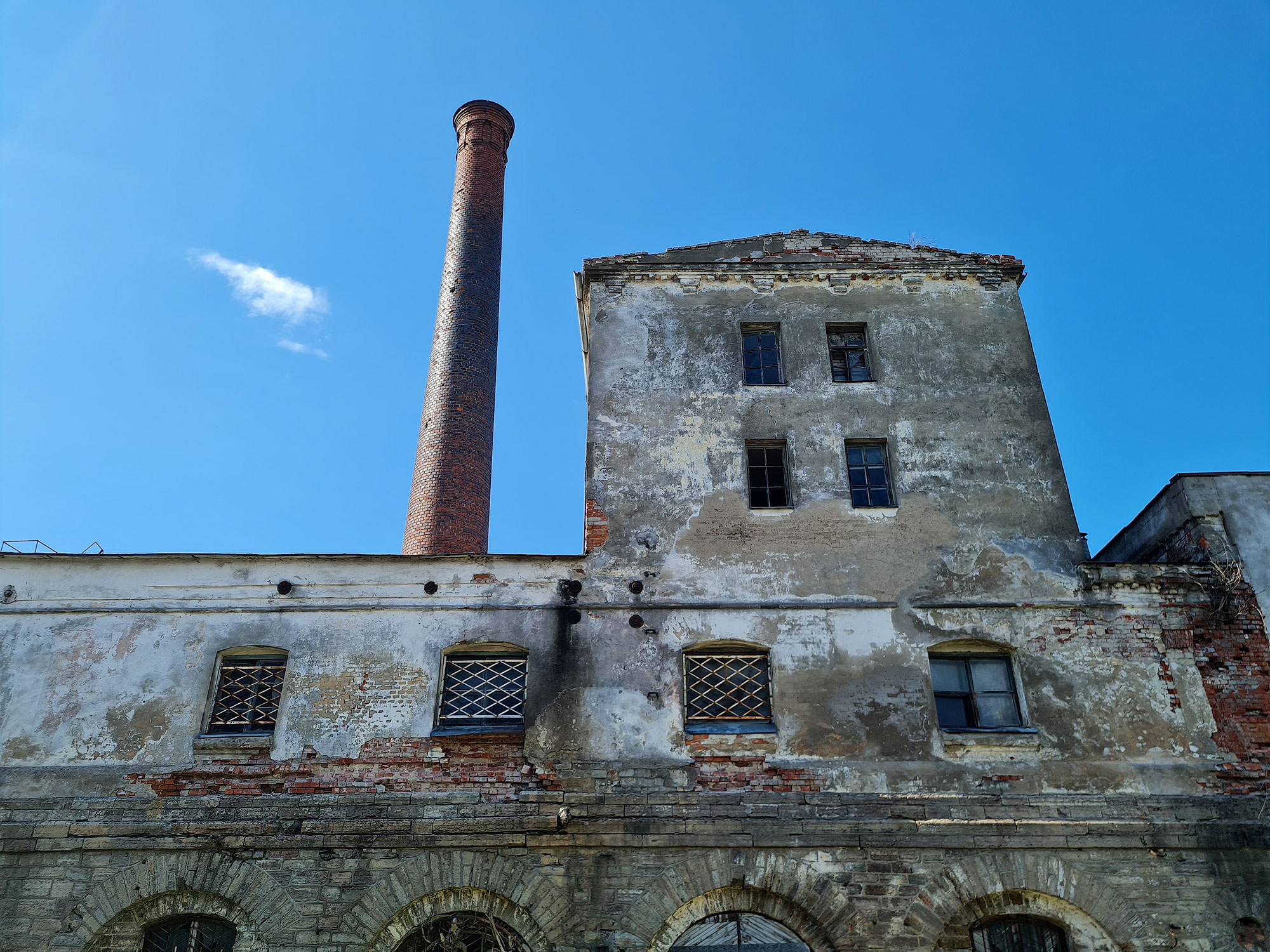The bakehouse was built according to the plans of Paul Alisch between 1893 and 1894. There were baking ovens equipped with steam pipes, mixing machines and mechanical presses. Later the oven was renovated and improved.
The white plastered brick building was rebuilt several times, but in general the exterior remained the same. We can easily recognize the typical Kreenholm arched windows, niches and cornices. By the way, bread is still made in this building.
Rye bread baking had started in Kreenholm a year before the bakehouse was built, and a year after it was ready, white bread was baked there too. To buy bread in the manufacture was much cheaper for Kreenholm workers than buying it in the city. An eight-pound loaf of bread cost the workers 10 kopecks. For comparison, a bottle of beer cost 5-8 kopecks and a liter of milk you bought for 5 kopecks. A worker’s monthly bread allowance was 32 pounds, which is approximately 13 kilos. In Kreenholm, workers could buy rye bread, later also white bread, for special coins which were called bread money. There was nothing unusual about paying wages in food at that time.
Bread baking stopped under the German occupation in March 1918, it started again only when the War of Independence was over. Siina, the main character of the novel “Narva Kosk” by the well-known Estonian writer Vladimir Beekman, lived in Kreenholm and here is what she remembers about the Germans coming in 1918:
“When I rushed home that day /…/, I got really scared. I was walking along Kreenholm avenue from the station. Our ridiculous school building was behind me on the left. /…/ I hurriedly passed the barracks and the clumsy tree trunks on the left looked especially gray under the spring sun. On the right hand side, the brick walls of the three-story new barracks shone through the delicate green of the leafy linden trees.” (These are the new barracks that we saw earlier.)
“At this point, I had a disturbing feeling that something was wrong. I started thinking about it: what could it be? Does this mean there is danger? The buildings were the same right where they had always been and there were no people to be seen around. Then what? After a while, I realized it. Usually, with the wind from the river side, the smell of fresh bread wafting from the bakery off the factory always lingered here between the barracks. There was always a lot of bread baked because we ate a lot of bread. This is why the most delicious smell in the world always stayed here. It was different now – there was no smell and the odorless air felt plain. It was just like the cleared and open market place next to Uusküla, because the Germans did not allow peasants into the city market. This is our life now – clean and austere – according to the German custom, I thought venomously and rushed on.”





